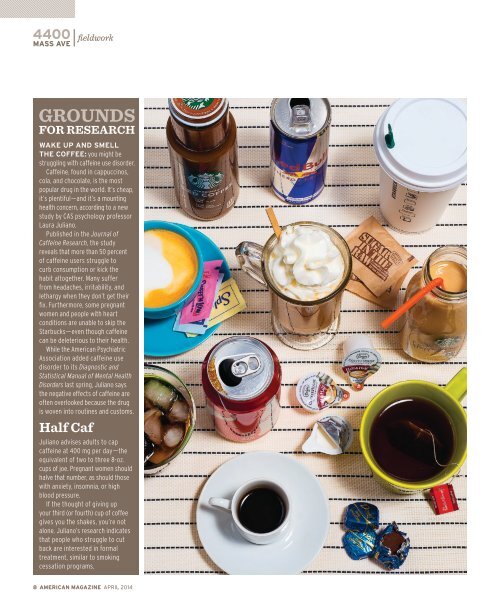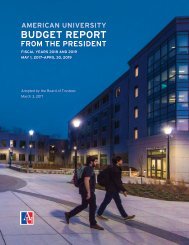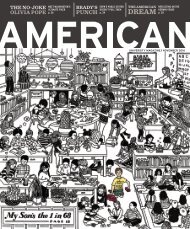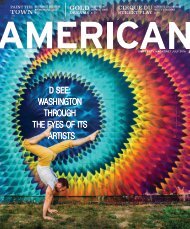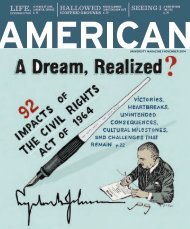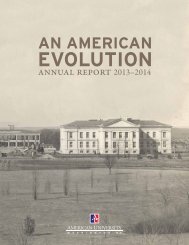American Magazine April 2014
American University is located in Washington, D.C., at the top of Embassy Row. Chartered by Congress in 1893 to serve the public interest and build the nation, the university educates active citizens who apply knowledge to the most pressing concerns facing the nation and world. Students engage with leading faculty experts and world leaders, learning how to create change and address issues including the global economic crisis, health care, human rights and justice, diversity, the environment and sustainability, immigration, journalism’s transformation, corporate governance, and governmental reform.
American University is located in Washington, D.C., at the top of Embassy Row. Chartered by Congress in 1893 to serve the public interest and build the nation, the university educates active citizens who apply knowledge to the most pressing concerns facing the nation and world.
Students engage with leading faculty experts and world leaders, learning how to create change and address issues including the global economic crisis, health care, human rights and justice, diversity, the environment and sustainability, immigration, journalism’s transformation, corporate governance, and governmental reform.
Create successful ePaper yourself
Turn your PDF publications into a flip-book with our unique Google optimized e-Paper software.
fieldwork<br />
WAKE UP AND SMELL<br />
THE COFFEE: you might be<br />
struggling with caffeine use disorder.<br />
Caffeine, found in cappuccinos,<br />
cola, and chocolate, is the most<br />
popular drug in the world. It’s cheap,<br />
it’s plentiful—and it’s a mounting<br />
health concern, according to a new<br />
study by CAS psychology professor<br />
Laura Juliano.<br />
Published in the Journal of<br />
Caffeine Research, the study<br />
reveals that more than 50 percent<br />
of caffeine users struggle to<br />
curb consumption or kick the<br />
habit altogether. Many suffer<br />
from headaches, irritability, and<br />
lethargy when they don’t get their<br />
fix. Furthermore, some pregnant<br />
women and people with heart<br />
conditions are unable to skip the<br />
Starbucks—even though caffeine<br />
can be deleterious to their health.<br />
While the <strong>American</strong> Psychiatric<br />
Association added caffeine use<br />
disorder to its Diagnostic and<br />
Statistical Manual of Mental Health<br />
Disorders last spring, Juliano says<br />
the negative effects of caffeine are<br />
often overlooked because the drug<br />
is woven into routines and customs.<br />
Half Caf<br />
Juliano advises adults to cap<br />
caffeine at 400 mg per day—the<br />
equivalent of two to three 8-oz.<br />
cups of joe. Pregnant women should<br />
halve that number, as should those<br />
with anxiety, insomnia, or high<br />
blood pressure.<br />
If the thought of giving up<br />
your third (or fourth) cup of coffee<br />
gives you the shakes, you’re not<br />
alone. Juliano’s research indicates<br />
that people who struggle to cut<br />
back are interested in formal<br />
treatment, similar to smoking<br />
cessation programs.<br />
8 AMERICAN MAGAZINE APRIL <strong>2014</strong>


